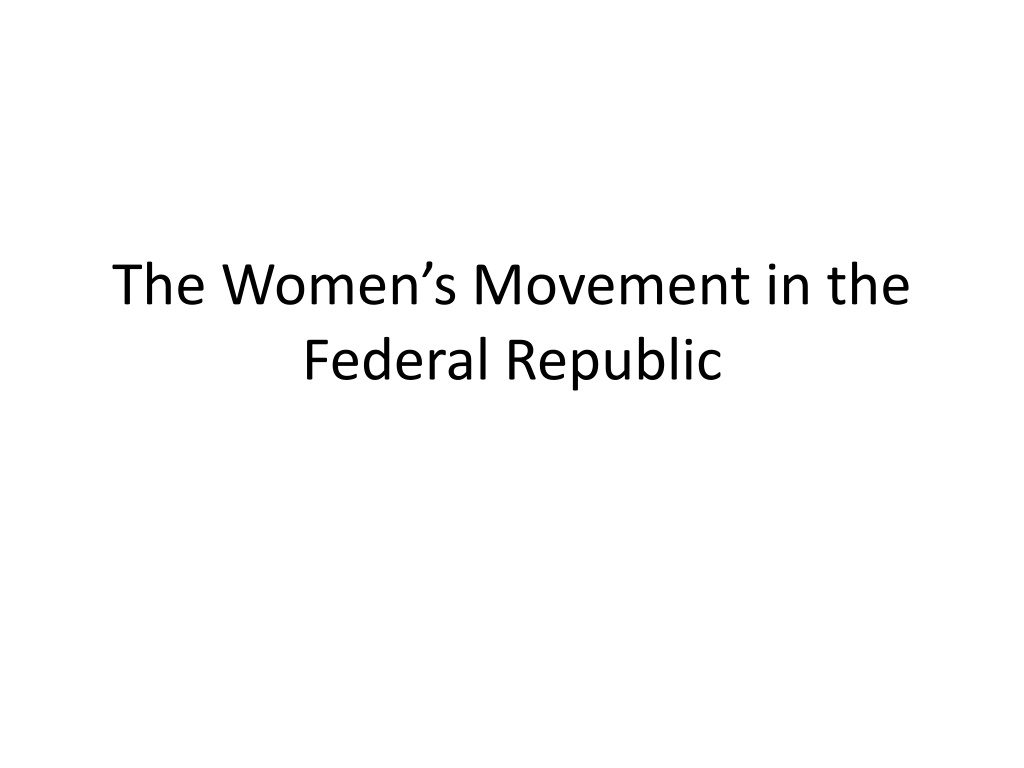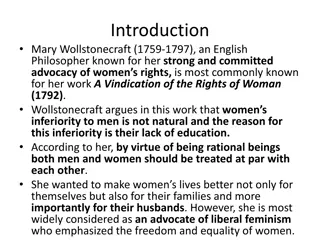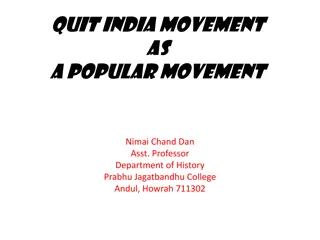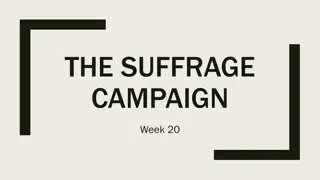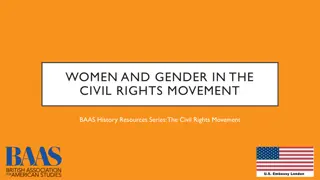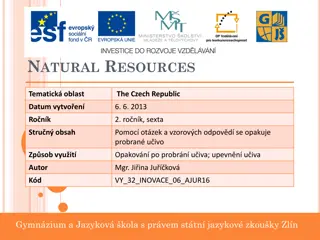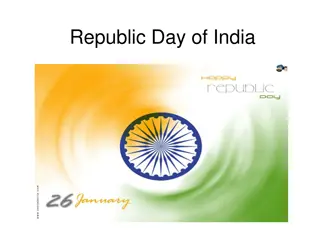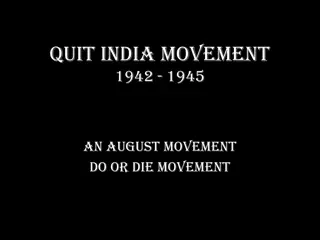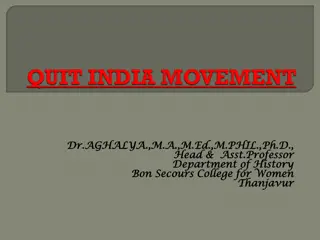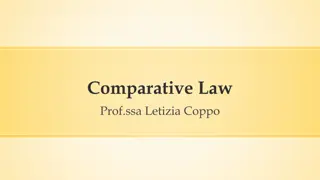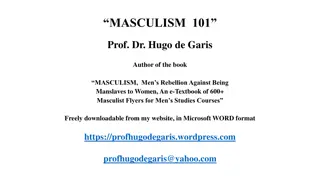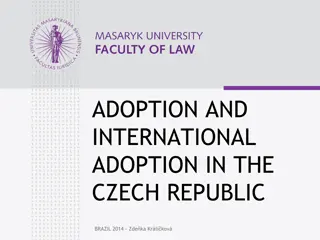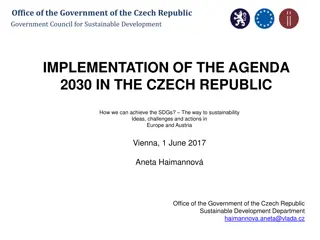The Women's Movement in the Federal Republic
The Women's Movement in the Federal Republic of Germany saw significant strides towards gender equality, with key legislations such as the Grundgesetz Art.3, Gleichberechtigungsgesetz, and reforms in the abortion laws. The movement also highlighted persistent disparities in employment, education, and representation. Various feminist ideologies such as Marxist/Socialist Feminism and Radical Feminism played crucial roles in challenging societal norms. The struggle for equal rights and opportunities for women continued to evolve through activism and legal reforms.
Uploaded on Mar 02, 2025 | 0 Views
Download Presentation

Please find below an Image/Link to download the presentation.
The content on the website is provided AS IS for your information and personal use only. It may not be sold, licensed, or shared on other websites without obtaining consent from the author.If you encounter any issues during the download, it is possible that the publisher has removed the file from their server.
You are allowed to download the files provided on this website for personal or commercial use, subject to the condition that they are used lawfully. All files are the property of their respective owners.
The content on the website is provided AS IS for your information and personal use only. It may not be sold, licensed, or shared on other websites without obtaining consent from the author.
E N D
Presentation Transcript
The Womens Movement in the Federal Republic
Grundgesetz, Art.3, 2 M nner und Frauen sind gleichberechtigt
Gleichberechtigungsgesetz Passed 1957
Frauenlohngruppen Special wage rates for female workers
1970/1 Industry: average pay of women is 30% lower than that of their male counterparts. White collar sector: women s pay is on average 38% lower Of 9.6 million women in employment 75% are performing unskilled or semi-skilled labour. Top-level management: Of 3300 positions only one filled by a woman (1980 = 1%, 1991 = 3%, 2000 = 6%) 70% of all girls receive no further education after the Volksschule Of every 10 girls in secondary school, only 2 go to university
Aktionsrat zur Befreiung der Frau Jan 1968 Initiated by 7 women activists from SDS Helke Sander criticises male SDS members at conference Sept 1968
218 Strafgesetzbuch Abtreibungsparagraph
Fristenlsung Bill passed by SPD-FDP government in 1974, permitting abortion within 3 months of pregnancy Bundesverfassungsgericht rules bill unconstitutional in 1975 Final bill in 1976: abortion allowed on 4 grounds medical, eugenic, criminological, social
Two types of Feminism Marxist/Socialist Feminism: based on belief that lack of equality has roots in capitalism & exploitaton (Hauptwiderspruch & Nebenwiderspruch) Radical Feminism: based on belief that roles are foisted on women by patriarchal culture (i.e. are socially constructed)
Sex vs. Gender Biologically determined Socially constructed
The history of women is the history of men trying to control their bodies (and minds)!
Alice Schwarzer nothing, neither race nor class, determines the nature of a human being so much as gender masculinity and femininity are fashioned not by nature but by culture
Das Persnliche ist politisch Selbsterfahrungsgruppen
July 1978 10 Feminists, among them actress Romy Schneider & writer Alice Schawarzer take Stern magazine to court over sexist image of women.
Courage and Emma Courage (1976-84) Circulation by 1978: 60.000 Emma (since 1977)
Frauenoffensive, women s publishing venture, 1975 H utungen (Verena Stefan), 1975 autobiographical (Selbsterfahrung)
